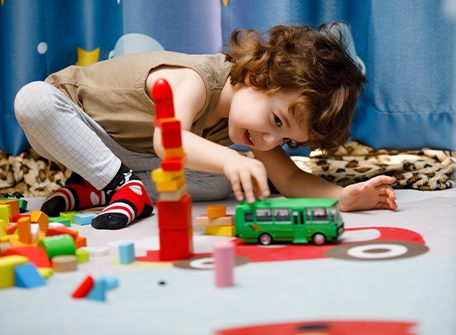As new parents, we’re all looking forward to our children reaching their next developmental milestone. When is he going to start rolling? When will she be able to walk? Unfortunately, it’s all too easy to compare your baby’s abilities to those of other babies and become concerned that your little one isn’t crawling as quickly as other children.
Babies develop at varying rates depending on a variety of circumstances. The fact that one youngster learns to walk at 10 months and another at 13 months isn’t a sign of any kind of medical problem, and it won’t tell you which child will grow up to be a star athlete.
However, there will come a point when you should express your concerns to your child’s doctor. They can suggest your child be assessed by a pediatric physical therapist who is highly trained in this area.
What Are The Many Types Of Neurological Issues That Children Face?
The following are examples of neurological issues:
- Cerebral palsy is an example of a congenital condition.
- Ataxia and dyspraxia are examples of developmental problems.
- Injuries to the head
- Brain and spinal cancers are cancers that affect the brain and spinal cord.
- Spinal cord diseases are a group of disorders that affect the spinal cord.
- Nerve damage to the periphery
- Problems with learning
What Are The Signs And Symptoms Of Neurological Disorders In Kids?
The following are some of the signs and symptoms of respiratory problems:
- Having mobility issues
- Muscle strength declines
- Reduced range of motion
- Problems with equilibrium
- Tone or spasticity (increased/decreased)
Symptoms and severity vary depending on the illness and the person.
What Are The Different Types Of Pediatric Neurological Disorders?
Problems involving the brain, spinal cord, or peripheral nerves are known as neurological disorders. Physical functions such as mobility, strength, range of motion, and balance may be affected in children with neurological problems.
These issues can also have an effect on a child’s growth. This means the child will likely accomplish developmental milestones later in life, which will have an influence on functions such as head control, crawling, walking, and talking.
What Exactly is An Intensive physiotherapy program?
An Intensive physiotherapy program is a high-intensity physiotherapy program that is completed daily over a few weeks to improve functional ability. It is generally intended to assist children who have neurological conditions that have existed since birth or that have developed during childhood. To ensure that your child’s needs are met, it will frequently collaborate with other health professionals such as occupational therapists and speech and language therapists.
What Role Does Intensive Physiotherapy Play In The Treatment Of Children With Neurological Disorders?
Physiotherapy will help the child realize his or her full potential and boost physical growth in order to achieve certain goals like crawling or walking. Exercises are frequently used in conjunction with hands-on treatment to aid development. The treatment is tailored to each child and will differ from one to the next.
Each Intensive Physical Therapy session includes a variety of techniques that can be utilized on children as young as three months old and up to any age. Cuevas Medek Exercise, or CME®, for example, is an important aspect of Intensive Physical Therapy Programs. This program can assist youngsters with motor delays and abnormalities in eliciting automatic motor responses.
Hope AMC’s Intensive Physiotherapy program- A Quick Look
Hope AMC is one of the best rehabilitation centers for intensive physiotherapy in Dubai. Occupational Therapy, Physical Therapy, Feeding Therapy, and Speech and Language Therapy are all part of our Intensive Therapy Programs. It is one of the most well-known therapies for a variety of ailments. The programs are tailored to the children’s individual requirements and objectives.
Our intensive therapy program lasts three weeks, and therapy sessions are available all year. The therapy sessions are scheduled between 2 and 6 hours each day, depending on the child’s age, demands, condition, skills, and deficiencies. Our novel and effective therapeutic method aids in the improvement of children’s balance, functional abilities, stamina, and muscle strength.
Final Words
Don’t wait any longer if you see your children are having difficulty with physical movement or balancing owing to a neurological issue. Make an appointment with one of the best pediatric physiotherapists today.
Click here to discover more about our intensive physical therapy programs. You can also schedule an appointment with our therapists to discuss the specific condition of your children.


